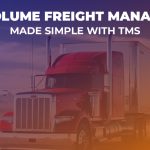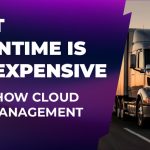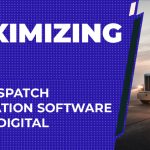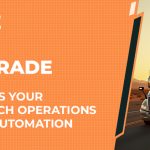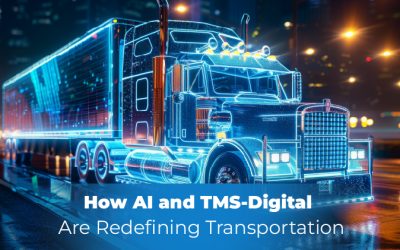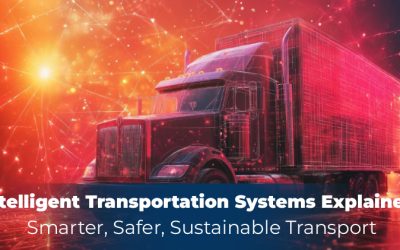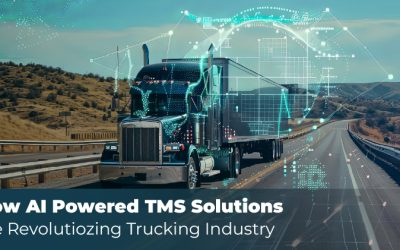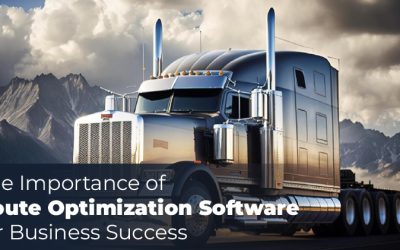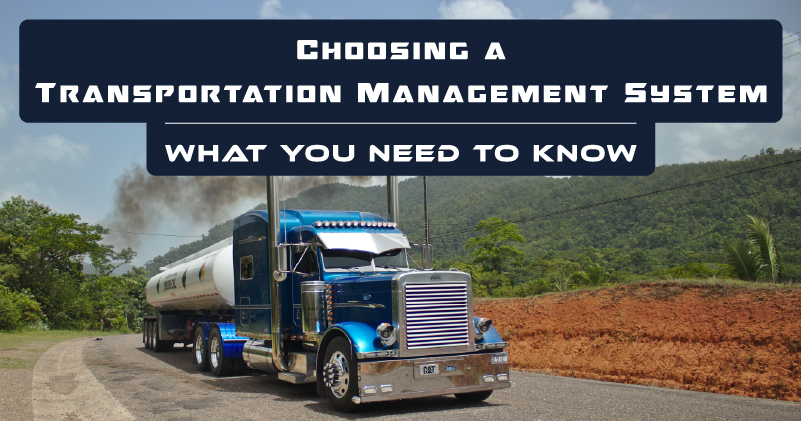
Transportation is a critical component of supply chain management, and efficient transportation management can significantly impact a business’s bottom line. One way to streamline transportation operations is by implementing a Transportation Management System (TMS). A TMS software solution helps companies to manage their transportation operations by automating manual processes, optimizing shipping routes, and providing real-time visibility and tracking. With so many TMS options, choosing the right one for your business can be overwhelming.
This blog post will discuss key factors to consider when selecting a TMS, including your transportation needs, key features to look for, deployment options, integration capabilities, user experience, pricing, and choosing the right TMS provider. By the end of this post, you will better understand what to look for in a TMS and how to choose the right solution for your business.
Understanding Your Transportation Needs
Before selecting a Transportation Management System (TMS), it is crucial to analyze your business’s transportation requirements. Understanding your transportation needs will help you determine what features and capabilities your TMS should have. Here are some essential considerations:
- Type of shipments: Identify the type of shipments your business handles. Are they full truckload, less-than-truckload, intermodal, or parcel shipments? Each type of shipment has its unique transportation requirements.
- Geographical scope: Determine the geographical scope of your business’s transportation needs. Are you shipping domestically or internationally? Do you need to manage multiple warehouses or distribution centers?
- Size of your operation: Consider the size of your operation, including the number of shipments you handle daily, weekly, or monthly. The volume of shipments will influence the level of automation and optimization you require from your TMS.
- Special requirements: Do your shipments require any special handling or equipment, such as temperature-controlled or hazardous materials? Consider any special needs your business may have when selecting a TMS.
You can narrow your options by analyzing your transportation needs and selecting a TMS that meets your requirements.
Key Features to Look for in a TMS
When choosing a Transportation Management System (TMS), it is essential to look for key features that can help streamline your transportation operations and increase efficiency. Here are some critical features to consider:
- Automated order processing: A TMS should automate receiving and processing of orders, including order entry, validation, and processing.
- Route optimization: A TMS should optimize shipping routes to reduce transportation costs and improve delivery times. It should consider factors such as shipment size, delivery location, mode of transportation, and carrier capacity.
- Carrier selection and management: A TMS should provide the ability to manage multiple carriers, compare rates, and select the best carrier for each shipment.
- Real-time tracking and visibility: A TMS should provide real-time tracking and visibility of shipments, including delivery status, location, and estimated arrival time.
- Freight payment and auditing: A TMS should automate the process of paying freight invoices and provide auditing capabilities to identify billing errors and discrepancies.
- Reporting and analytics: A TMS should provide reporting and analytics capabilities to track performance metrics, such as on-time delivery, carrier performance, and transportation costs.
Businesses can optimize their transportation operations and improve their bottom line by selecting a TMS with these critical features.
 Integration Capabilities
Integration Capabilities
When selecting a Transportation Management System (TMS), it is crucial to consider its integration capabilities. The TMS should seamlessly integrate with existing systems, including Enterprise Resource Planning (ERP), Warehouse Management Systems (WMS), and other business applications. Here are some critical integration capabilities to consider:
- Compatibility with existing systems: The TMS should be compatible with existing systems, including ERP, WMS, and other business applications, to ensure seamless integration and data exchange.
- Ease of integration: The TMS should be easy to integrate with other systems without requiring significant modifications or custom development.
- Scalability: The TMS should be scalable and able to accommodate the growth of your business, including expanding the number of users, carriers, or shipping locations.
Businesses can streamline transportation operations by selecting a TMS with robust integration capabilities and ensuring data accuracy and consistency across all systems.
User Experience
The user experience is critical in selecting a Transportation Management System (TMS). A TMS should be user-friendly and intuitive, with a straightforward user interface that is easy to navigate. Here are some essential factors to consider when evaluating the user experience of a TMS:
- User-friendliness: The TMS should be user-friendly, with an intuitive interface that is easy to use and navigate. It should be simple training and technical knowledge to operate.
- Training and support: The TMS provider should provide training and support to help users get up to speed quickly and troubleshoot any issues.
- Customization: The TMS should be customizable to meet the unique needs of your business, including configuring workflows and user roles.
By selecting a TMS with a positive user experience, businesses can increase user adoption and maximize the value of the TMS investment.
Risk, Cost Management, and Compliance
Understanding performance value and financial reporting is more crucial than ever during supply chain disruption, shortages, and high delivery costs. A few instances of recent events that resulted in service disruptions and expenses include the Suez Canal accident, evolving COVID-19 variations, and international sanctions.
A TMS software should have the following features to increase resilience against disruption:
- Reporting and analytics related to finances and logistics
- Resource Planning and allocating costs
- Keeping track of service level agreements (SLAs) and checking for compliance
- Embedded intelligence for risk management, strategy planning, and performance insights
- Internal efficiency based on order condensing, physical flow management, capacity planning, carrier, and assignment.
- Automation and intelligent business rules
- Granular order-level and global reporting to assist labor productivity, inventory control, and other cost-cutting strategies.
Choosing the Right TMS Provider
Selecting the right Transportation Management System (TMS) requires careful consideration of various factors, including understanding your transportation needs, evaluating key features, assessing integration capabilities, and evaluating the user experience. Choosing a reputable TMS provider with industry expertise, excellent customer support, and a proven track record of successful implementations is also essential. By selecting the right TMS and provider, businesses can optimize their transportation operations, increase efficiency, and improve their bottom line.
TMS-Digital offers dispatch, safety, equipment maintenance, IFTA management, etc. With excellent integration capabilities, a user-friendly interface, and 24/7 customer support to ensure a successful implementation and ongoing support for your TMS. If you are looking for a comprehensive TMS solution that meets the unique needs of your business, TMS-Digital is the right choice for you. Contact us today to learn more and schedule a demo.
